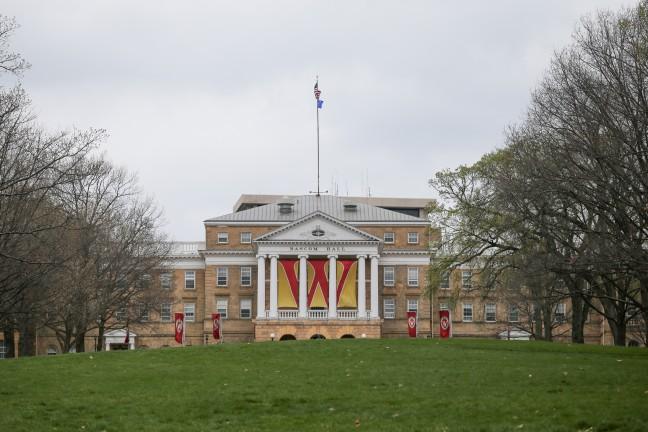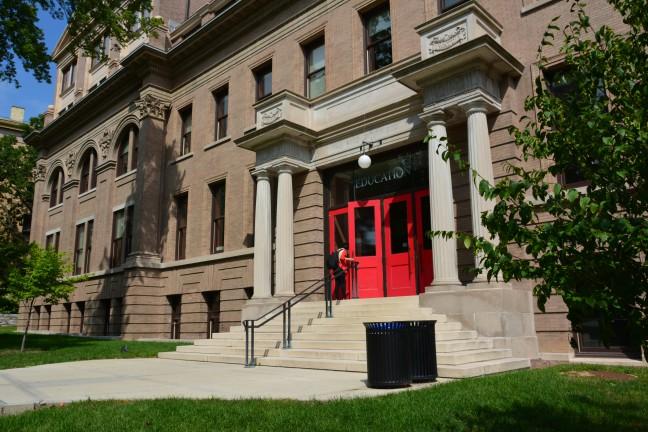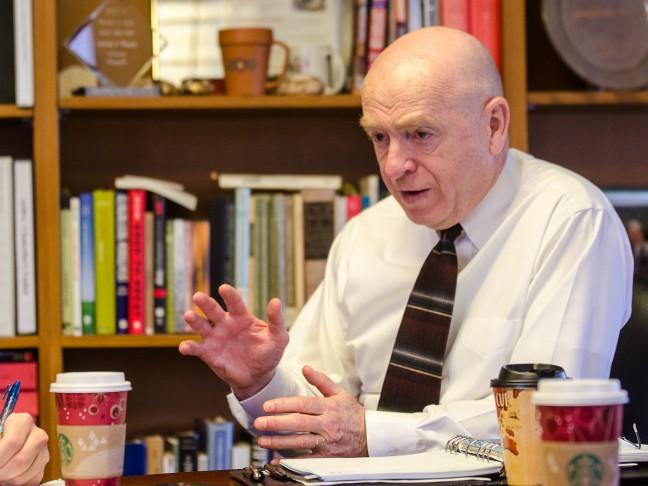
Self-proclaimed skeptic and editor Michael Shermer told a crowd at UW the human brain has difficulty breaking from past beliefs.
University of Wisconsin students were urged not to believe everything they hear by a self-proclaimed “skeptic” at the Wisconsin Union Directorate’s Distinguished Lecture Series installment Monday.Editor Michael Shermer used humor and science to show how the brain works to form human belief systems. Once a person believes something it can be hard for them to break out of this pattern and it leads to people believing many things, Shermer said.
“Once a belief is set up, the brain is designed to make sure you are always right,” Shermer said. “It is very difficult to accept contradictory evidence.”
Shermer is the founding publisher and editor of the magazine Skeptic and also writes for the Scientific American Magazine.
He has appeared on several television shows including The Colbert Report, Larry King Live and Oprah.
“What we specialize at Skeptic is looking at the margins of what other people don’t cover,” Shermer said. “Our niche is the borderlands of science.”
Shermer said he hopes students will know more about how we form our belief systems and how this can help them see biases in their own thinking.
“By knowing that, you can try to watch out for those biases and those things that distort our thinking just by being aware of it,” Shermer said.
He added that was the take-home message of the night.
Shermer said people form beliefs and then try to find information that will confirm said beliefs. He used the example of creationists trying to use science to explain their conviction the earth is 10,000 years old.
“They’ll give you factual information — they won’t say ‘my religion tells me I have to believe this,'” Shermer said.
He said science helps us to break free from this way of thinking, stating there is nothing special about science — it’s just a tool to try to avoid cognitive biases that cloud human thinking.
Shermer poked fun at people who believe in big government conspiracy theories, saying that bureaucracy is too large and inefficient.
“Nixon couldn’t even orchestrate a break-in at the Watergate hotel. Their cover was blown by a security guard,” Shermer said. “These are the same bureaucrats that are going to pull off 9/11?”
UW senior Jack Keegan said he came to the lecture because he respects Shermer and knows he comes from a good scientific background.
“I just find it really interesting to see a more logical perspective on a range of things like evolution and conspiracy theories,” Keegan said.
He added the “more realistic, down-to-earth perspective” was refreshing.
UW freshman Dean Knetter said he was glad Shermer talked about the lack of proof that humans have a conscience other than the brain.
“I’m glad he brought up the point that reality is just the brain,” Knetter said. “There’s no mind or soul. I mean, those are comforting notions, but in reality I think that the brain is the human identity.”















